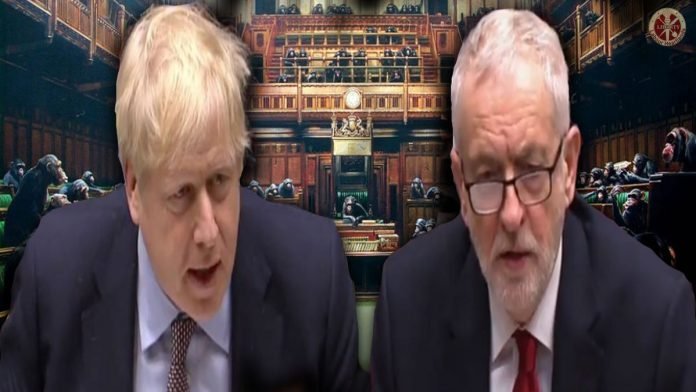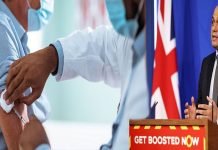Boris Johnson said sick pay will start being paid from day one, not after four days of sickness – but it still won’t be available yet to those who earn less than £118 a week
Statutory sick pay laws will be changed in emergency legislation to help people with Coronavirus.
Prime Minister Boris Johnson announce the £94-a-week payment will be available from day one, not after four days of sickness as the law currently says.
But Jeremy Corbyn slammed the changes for not going far enough – because restrictions remain in place barring sick pay to 2million low paid workers.
The Prime Minister faced groans of fury as he said those workers can claim Universal Credit , and that the £118-a-week minimum earnings threshold was still under review.
Mr Corbyn said the situation will leave low paid workers with a “terrible choice between health and hardship”. He added UC claimants face a five week wait for payment.
A large group of part-time workers – about two million – are not even entitled to statutory sick pay because they do not earn the minimum of £118 a week. This includes nearly a quarter of workers on zero hours contracts and one in 10 working women. The more than five million self-employed workers in the UK are also not entitled to SSP.
Unite sick pay from day one for all workers
Unite has now called on the government to introduce emergency legislation to ensure all workers receive statutory sick pay from day one, regardless of how much they earn. The union is also calling for workers who must self-isolate to be fully paid for the time they must take off.
Unite assistant general secretary Steve Turner said this was “a vital public health issue — the state must intervene to protect workers where collective agreements don’t exist.
“Acas advice, which can be found online, is useful for those unsure about their entitlement to sick pay,” he explained. “But as a union Unite will be working to negotiate well beyond Acas guidance – this guidance only highlights that there is no legal right to sick pay if a worker is forced to self-isolate where they have no symptoms, unless the employer instructs the worker to remain home.”
“Public Health England advises self-isolation when returning from certain specified countries, whether a person has symptoms or not.”
“Employers must acknowledge their responsibility to slow the transmission of this serious virus,” he added. “There is a high risk of workers coming into work in these circumstances if they know they will not be paid if they stay at home. This then puts other employees at risk if that person is infected. The only way we can contain and mitigate the impact of this virus is if everyone works together to do their bit — including employers.”
You can join the call for the government to guarantee sick pay for every worker from day one by signing the TUC’s petition here.
Help Us Sustain Ad-Free Journalism
Sorry, I Need To Put Out the Begging Bowl
Independent Journalism Needs You
Our unwavering dedication is to provide you with unbiased news, diverse perspectives, and insightful opinions. We're on a mission to ensure that those in positions of power are held accountable for their actions, but we can't do it alone. Labour Heartlands is primarily funded by me, Paul Knaggs, and by the generous contributions of readers like you. Your donations keep us going and help us uphold the principles of independent journalism. Join us in our quest for truth, transparency, and accountability – donate today and be a part of our mission!
Like everyone else, we're facing challenges, and we need your help to stay online and continue providing crucial journalism. Every contribution, no matter how small, goes a long way in helping us thrive. By becoming one of our donors, you become a vital part of our mission to uncover the truth and uphold the values of democracy.
While we maintain our independence from political affiliations, we stand united against corruption, injustice, and the erosion of free speech, truth, and democracy. We believe in the power of accurate information in a democracy, and we consider facts non-negotiable.
Your support, no matter the amount, can make a significant impact. Together, we can make a difference and continue our journey toward a more informed and just society.
Thank you for supporting Labour Heartlands












